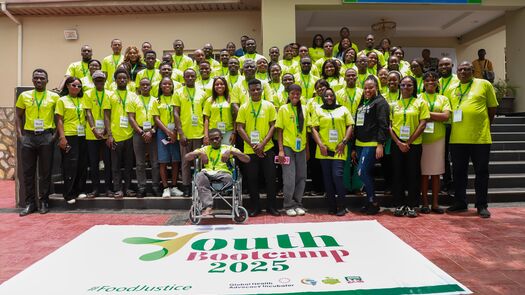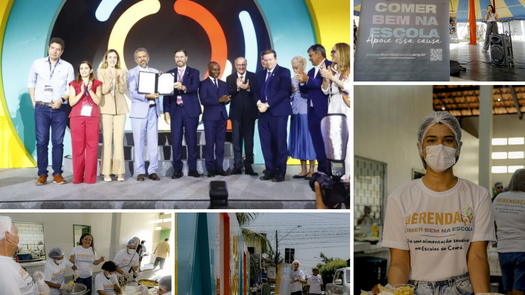November 25, 2025

On February 21st, the Global Health Advocacy Incubator (GHAI) hosted a webinar to introduce our latest position paper, "Nutrient Profile Models: A Valuable Tool for Developing Healthy Food Policies." Developed in partnership with the Global Center for Legal Innovation on Food Environments and the O’Neill Institute at Georgetown Law, Resolve to Save Lives and Vital Strategies, the paper provides civil society and governments with advocacy, policy and technical recommendations to ensure the most effective use of Nutrient Profile Models (NPMs) in the strategic formulation and enforcement of policies aimed at preventing diseases and fostering healthier lifestyles.
The webinar's first half featured a comprehensive presentation by Verónica Schoj, MD, Vice President of Food and Nutrition at GHAI, and Evelyn Gitz, PhD, Senior Advisor for Food and Nutrition Programs at GHAI. Grounded in the World Health Organization's definition, nutrient profiling emerged as the science of categorizing food products based on their nutritional composition to promote health and combat diseases. NPMs, as the paper explains, provides the framework for categorizing products and establishing thresholds, with the primary goal of discouraging the consumption of unhealthy products, ultimately enhancing diet quality and global health.
NPMs function is a versatile tool for designing, implementing and monitoring regulatory strategies, playing a role in the development of front-of-package warning labels, marketing restrictions, school food regulations, taxation policies and more. A robust NPM, crucial for global control and prevention of noncommunicable diseases, becomes the cornerstone of effective health policies.
Among other policy guidance, the NPMs position paper recommends not including “nutrients to encourage.” "Nutrients to encourage" refers to specific dietary components (vitamins, minerals and other essential compounds that play crucial roles in various physiological functions, such as growth, development, metabolism and disease prevention) that promote health and well-being. While these nutrients may be a positive addition to diets, this omission stems from concerns about potential consumer confusion, dilution of policy impact and alignment with the positive nutrition approach employed by global food corporations. The technical complexity and the lack of unified international standards were acknowledged as challenges in creating effective NPMs, further exacerbated by industry interference seeking to undermine these essential food policies. This could look like industry attempting to influence policies to favor their products, sometimes by advocating for specific nutrients that are present in their products. This interference can undermine the integrity and effectiveness of public health policies.
The second half of the webinar unfolded into a dynamic panel discussion, moderated by Esubalew Dadi, Food Policy Director for Africa at GHAI, Isabel Barbosa, Associate Director at the O’Neill Institute, Laura Cobb, Director of Nutrition and Surveillance at Resolve to Save Lives and Trish Cotter, Senior Director and Global Lead of Food Policy Program at Vital Strategies, joined by Dr. Schoj to provide layered insights into the significance of the position paper on NPMs.
The discussion centered around how industries oppose best practice NPMs, lobby for less strict thresholds and advocate for scoring systems that highlight "nutrients to encourage." Ms. Cotter spotlighted the pitfalls of such an approach, revealing its potential to enable industries to market ultra-processed products as healthy alternatives. Laura delved into the limitations of scoring systems, explaining how their black-box nature inhibits individuals from making clear, informed dietary decisions. Ms. Barbosa brought attention to the ongoing battle between public health interests and industry forces, underscoring the necessity of establishing rules of engagement to prevent and address industry interference. Dr. Schoj concluded the discussion by providing a strategic approach to adopting regional models, recommending the embrace of the highest standards and a relentless pursuit of excellence tailored to each country's context.
Together, the panelists provided an overview of the biggest questions facing countries in the development of NPMs, along with recommendations for progress based on the experiences of diverse countries and regions. GHAI hopes the insights from this webinar will help advocates and policymakers to utilize the paper to develop informed healthy food policy.
Watch the recordings:
Spanish
English
Portuguese



